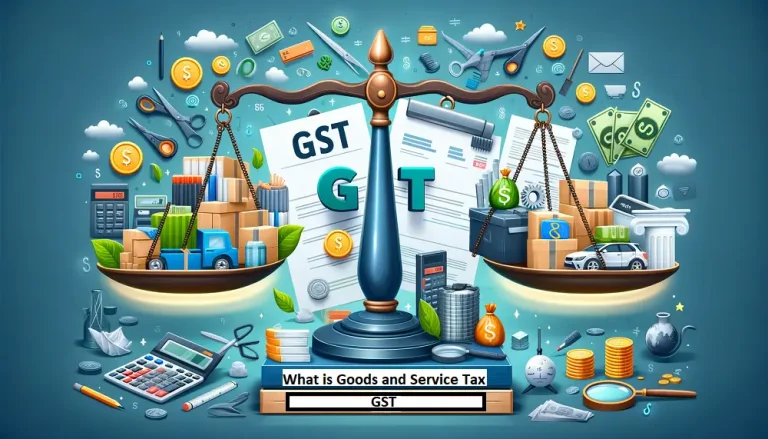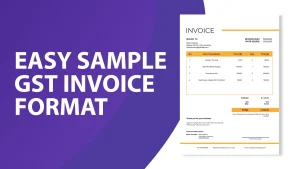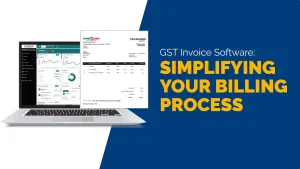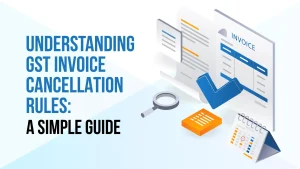Let’s discuss Goods and Service Tax (GST). In India, GST affects most purchases or sales made. Imagine it as an added fee on everyday items we use like groceries. This is essential both to businesses as well as everyday people alike.
What Is GST?
GST stands for Goods and Service Tax; it’s a special tax added onto most purchases we make in India. Previously, multiple taxes existed which made life very complicated. Imagine going shopping and being required to pay not just the item’s cost but also various taxes that were all over the place – it can be extremely confusing! That’s where Goods service tax came into play; replacing all those different taxes with one unified one-tax structure made understanding taxes much simpler for all involved. This was truly revolutionary. No matter if you’re purchasing a phone, eating out, or getting your hair done; all bills now contain one single tax.
When was GST Introduced in India?
On July 1, 2017 India introduced Goods and Service Tax. The government, along with a group of people, decided to simplify taxes through GST. Before goods and service tax there were multiple different taxes; now there will be one single one instead. They established the GST Council which decides how much tax should be charged on various items.
So they came together, met regularly, and on July 1, 2017, Goods and services tax officially came into play in India – unifying all taxes into one system to make things simpler for government, businesses, and people.
Different Types of GST
India currently recognizes four types of Goods service tax returns. These are:
- CGST (Central Goods and Services Tax): When buying or selling things within one state, CGST is collected as an indirect tax by the central government in order to raise money for activities like infrastructure development and public services.
- State Goods and Services Tax): When purchasing or selling something within your state, an SGST tax is collected by your government and used for local projects, schools and other purposes that benefit the entire population of that particular state. The money collected stays within its borders to fund local needs or state initiatives.
- IGST (Integrated Goods and Services Tax): When buying something that originates in another state, IGST comes into effect to facilitate transactions smoothly across state boundaries and ensure a fair distribution of revenues among participating jurisdictions.
- UTGST (Union Territory Goods and Services Tax): UTGST is applied only on sales occurring within Union Territories governed directly by the central government; thus enabling more consistent financial management and development across these regions.
Why GST is Good?
Goods service tax makes life simpler in multiple ways:
- Simplifying Tax Rules: Businesses were previously required to deal with multiple taxes that often made tax filing confusing and difficult, making life harder overall for all involved parties involved. Now with GST there is just one set of clear guidelines governing all transactions which makes life much simpler!
- No Double Taxing: Historically, one item might have been taxed multiple times before reaching you; This tax puts an end to this by only taxing for value added at each step; so no more double paying!
- Simple for Businesses: Goods service tax makes life simple for businesses by eliminating local tax variations across regions; instead it creates one common price tag across the board that makes business planning much simpler.
- Improved Earnings for Government: By monitoring transactions closely and making it harder for people to avoid paying taxes, GST allows governments to collect what money is necessary more efficiently and consistently.
How to Get a GST Number
Why It’s Important: Having a business? You need a Goods service tax number – it’s like a special code for your business when dealing with taxes. This code helps the government keep things in order.
Simple Application Online: Applying is easy! Just go to the GST website on the internet. It’s like filling out a form but on your computer or phone.
Documents You Need: Before you start, make sure you have some papers ready:
- Business Proof: These papers show that your business is real and doing its thing.
- PAN Card: Business’s special ID card.
How to Apply for a GST Number
- Visit the GST Website: Step one in applying for a GST Number To start out, first visit the website devoted solely for this task. Think of it like visiting an oasis on the web where everything related to applying for one can take place at one convenient place on the net!
- Provide Your Information: Enter in details about your business such as its name and where it lives (its address), as well as basic facts that describe its operations.
- Put Your Papers Online: In order to demonstrate that you own and run a legitimate business, proof and PAN cards will need to be presented for verification. No need for alarm here – take some clear images and put them online so your customers can access them easily.
- Receive Approval: Once your submission has been sent off to its intended target, now comes the waiting game! Those responsible will assess it, and if all goes according to plan they’ll reply “OK – You are all set!”
- Once You Receive Approval: Assuming they approve you, once approved you’ll get your GST number and should use it when conducting business or paying taxes – think of it like your business’s secret code!
By following these easy steps, your Tax number should arrive shortly and make business official!
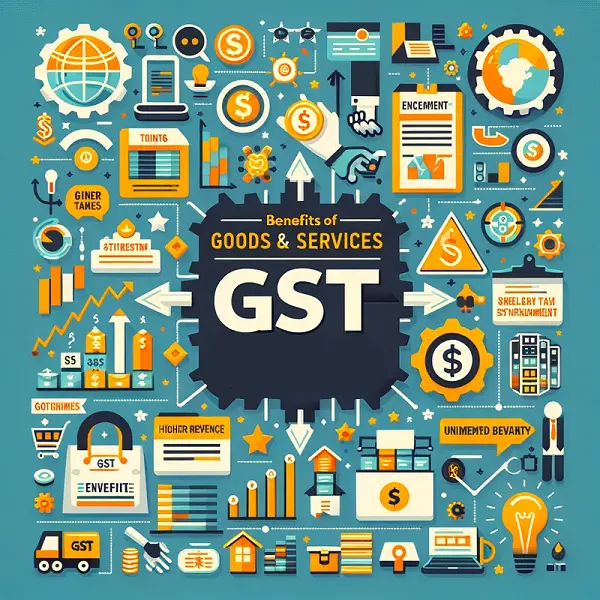
Let Simplify the Benefits of GST:
- Simplified Taxes: Goods service tax makes taxes simpler for businesses by consolidating numerous confusing taxes into one simple system that makes complying with rules more straightforward for all parties involved.
- Avoid Double Taxation: With goods and services tax, businesses can avoid double taxation by receiving credit for taxes they’ve already paid on goods they purchase; so they only owe taxes based on value added by them.
- More Businesses Paying Taxes: GST has attracted new businesses into the economic system and this bodes well for our nation as it means more entities contributing their share to taxes that help run it smoothly.
- Enabling Online Shopping: Goods service tax makes online shopping more efficient by creating uniform tax rules across online and physical store platforms, creating fairness amongst the shoppers involved.
- Clearer Transactions: GST encourages businesses to maintain accurate records of all their transactions in order to thwart tax evasion and creates more accountable businesses. This ensures people pay what is owed while also improving transparency for tax compliance purposes.
- Saves Money on Transporting Goods: Goods service tax makes transporting goods cheaper for businesses; with reduced taxes and checkpoints, businesses spend less money on transport.
- Unified Market for All States: GST creates one national market that businesses don’t need to worry about different tax rules across states when transacting business throughout the nation. It makes doing business more straightforward across state lines.
- Easier Business: GST makes running your own business simpler by streamlining tax administration procedures, so companies can focus their energy and effort on doing what they do best instead of worrying about complex taxes.
- More Reasonable Prices for Us: Goods service tax was created to make life fairer for consumers by eliminating hidden taxes that affect prices for goods and services we purchase. With its introduction, pricing becomes more transparent – meaning more reasonable purchases.
- Competing With Other Countries: Goods service tax provides Indian businesses an edge when competing globally by standardising tax rules across nations – something which makes India even more desirable to foreign investors.
Features of GST
let’s break down the features of Goods and services tax in simple terms:
One Tax for All: GST stands for Goods and Services Tax and replaces multiple indirect taxes such as excise duty, service tax and VAT with one simplified tax system designed to facilitate administration and reduce confusion for businesses as well as consumers alike.
Businesses may claim a Goods service tax refund when buying goods and services for business use, ensuring they do not bear an added tax burden from inputs they use instead of outputs they create. (Tax Where You Use, Not Where You Make)
Goods service tax stands out as being destination-based tax system that ensures fair distribution of taxes across states and provinces.
SME Benefit from GST: Small Businesses enterprises whose annual turnover falls beneath a specified threshold are exempt from Goods service tax payments, thus relieving compliance burden and permitting growth without an extra tax burden.
Easy Online Tax Payments: Tax has made tax payments simpler by streamlining online. Not only has this reduced paperwork but has improved efficiency of tax collection process making it simpler for businesses to comply with tax obligations.
Composition schemes offer small businesses an easier way to comply with Goods service tax. Instead of engaging in intricate accounting procedures and tracking payments for taxes on sales turnover separately, businesses under this scheme pay a fixed percentage as tax payments which reduce administrative workload significantly.
No Overcharging Customers: Goods tax rules provide provisions to prevent businesses from overcharging customers after implementation, in order to pass along reduced tax burdens directly and to avoid unfair pricing practices that occur because of unfair price discrepancies.
Team Decision-Making: Goods service tax decisions are reached collaboratively among representatives from across states and regions, to incorporate diverse perspectives while guaranteeing fair tax treatment of businesses and consumers across the country.
Establish Consistent Tax Rules across States: Standardizing state tax structures reduces complexities related to multiple tax structures, making for a more business-friendly environment as companies can more easily navigate tax systems regardless of where their offices may be based.
Use Tax Credits Wisely: Businesses can benefit from using the input tax credit system, in which tax paid on inputs can be deducted against output taxes owed. This mechanism encourages businesses to make informed and strategic purchases that reduce overall tax obligations while simultaneously decreasing overall costs for taxes due.
GST seeks to develop an open and efficient taxation system which benefits both businesses and consumers, boosts economic development, and simplifies overall tax structures.
Goods and Services Tax Network
The Goods and Services Tax Network (GSTN) serves as India’s digital backbone for managing Goods and Services Tax , the tax on most domestically consumed products sold for domestic consumption. GSTN helps make this process seamless and efficient.
Think of GSTN like an advanced computer system. When businesses sell something, they often add Goods service tax taxes onto the price, which then have to be submitted back to government – however this presents challenges – this is where GSTN comes into play! Businesses using the service must inform government about this tax; but how? And this is exactly where GSTN steps in.
Businesses register themselves on GSTN by creating an online account – it works similarly. Once registered, businesses use GSTN’s reporting tools to report how much sales have occurred as well as collect from customers for Goods service tax payments and submit payments directly. Furthermore, GSTN serves as the conduit through which businesses send Goods service tax payments back to government authorities.
GSTN provides businesses with more than just tax payments; it also assists in getting tax credits back when purchasing certain goods that require Goods service tax to get charged back later when selling something else for collection – helping ensure the final sale goes through properly and taxes only accrue when final sale occurs to consumer.
GSTN acts like an online office where businesses can do all their GST-related work. It simplifies tax management while helping governments track and collect taxes more efficiently.
Conclusion
GST in India is an enormously significant development that revolutionised how taxes work for everyone involved. Businesses should understand Tax’s implications and get themselves registered if needed if necessary in order to use suitable GST billing software to effectively administer and monitor it – as Tax provides immense economic and taxation advantages of Goods service tax across India’s economy and makes tax rules clearer and fairer than before.
Frequently Asked Questions
How does GST work?
GST is levied at every stage of the supply chain, allowing for input tax credits to be claimed by businesses for taxes paid on purchases. This ensures taxation is only on value addition.
Who is liable to pay GST?
Any business involved in the supply of goods or services, exceeding a certain turnover threshold, is required to register for GST and pay the applicable taxes.
What are the types of GST?
GST is categorized into Central GST (CGST), State GST (SGST), and Integrated GST (IGST). CGST and SGST are levied on intra-state transactions, while IGST is for inter-state transactions.
How does GST affect consumers?
GST aims to streamline the taxation system, eliminating cascading taxes, and promoting transparency. It may lead to reduced prices for consumers in the long run, although short-term fluctuations may occur.
What are the benefits of GST?
GST simplifies tax compliance for businesses, promotes ease of doing business, reduces tax evasion, eliminates multiple taxation layers, and fosters a unified national market.
Are there any goods or services exempt from GST?
Yes, certain essential items like fresh produce, healthcare services, educational services, and some petroleum products are exempted from GST or taxed at a lower rate.
How is GST different from the previous tax system?
Unlike the previous tax regime which had a plethora of indirect taxes, GST brings them under one umbrella, ensuring a more cohesive and efficient taxation structure.
What is the GST Council?
The GST Council is a constitutional body formed to make recommendations on issues related to GST, including tax rates, exemptions, and amendments in GST laws.
Where can I find more information about GST?
You can visit the official GST portal (www.gst.gov.in) or consult tax professionals and experts for comprehensive guidance and assistance regarding GST-related queries and compliance.

